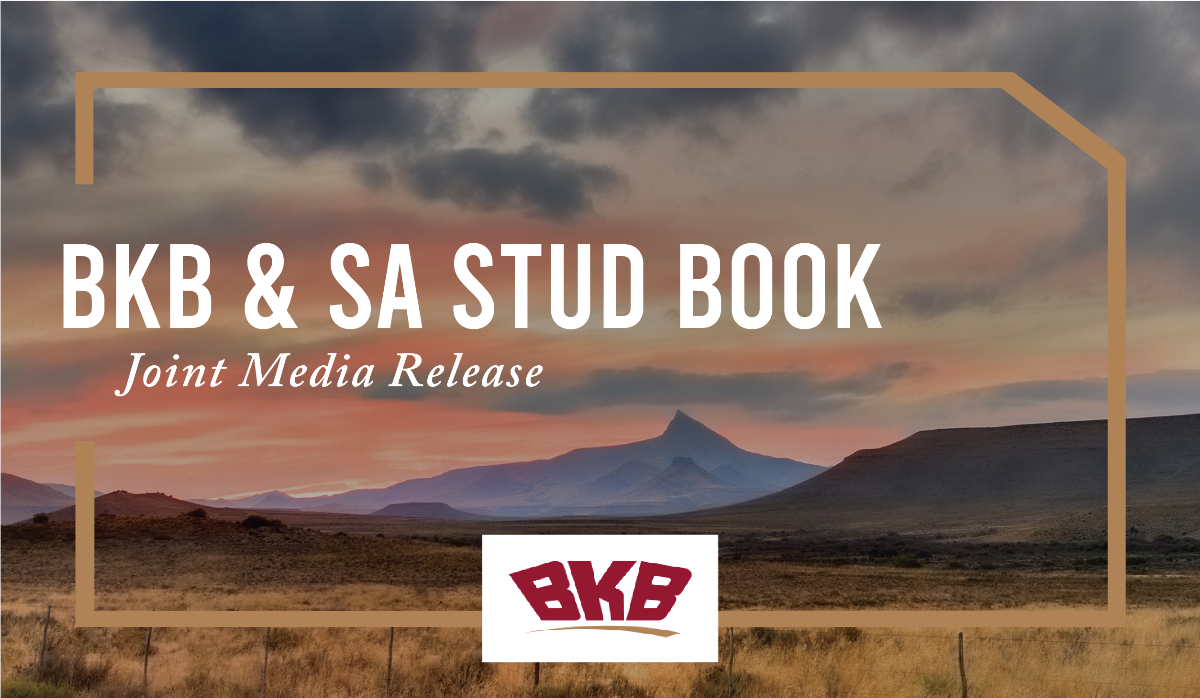BKB and SA Stud Book, two icons, each with roots of more than a hundred years in the livestock industry, henceforth place smart and informed knowledge in every small stock farmer’s reach, ensuring sustainable profit.
BKB has a proven track record of effectively assisting small stock farmers in the selection of their ewes and choice of herd sires. The organisation’s services and products extend from farm level to right through the value chain and therefore also serve as catalysts to build and strengthen networks.
SA Stud Book represents all the small livestock breeds in South Africa, is a precursor to the recording, processing, and hosting of animal information, and sets the standard for the use of genetic merit to make the right decisions in herds and flocks.
BKB and SA Stud Book have joined forces to create a new revolution for the meaningful use of data in the small stock industry.
DSS (Decision Support Services), a product of BKB that enables all small livestock farmers to make informed decisions and therefore farm more efficiently and profitably. This is the precision toolkit that a small stock producer, specialist advisor, study group, breeders’ society, and any other person who assists livestock owners and managers, can lay hands on. Producers that are interested can contact BKB. Thereafter BKB will engage with SA Studbook.
DSS makes it easy for flock and stud farmers to easily and efficiently capture data, either in simple ways right down to the most sophisticated smart systems like electronic tags and scale heads. Affordable ear tags that can still be read electronically (QR code tags) are part of the possibilities. There is thus a solution to fit each farmer in their system. The role that fibre (wool and mohair) production and quality play in combination with storelambs marketed, reproduction rate and survival of lambs form an integral part of DSS.
High level benchmarking comparisons are done between flocks, production systems, regions and management practices. Flock data, read together with wool data, income from other sellable products and culled animals, clearly shows that there are ewes that do not contribute towards profitable farming, while others provide sustainable profit. Most often, it is also daughters of specific rams who point out these differences. Participants can address the source of erosion, whether through management adaptations, selection of breeding animals, purchase of rams or making better use of all the resources.
Each participant is given the chance to decide for himself what the level of participation is, from the basic identification of herd animals to the application of genomic information to make use of the genetic levels of groups or individual animals in herds in optimal ram choices and matings through SASmallStock.com. DSS has three different models to accommodate the extensive till the intensive farmer in his/her production system.
SA Stud Book and BKB’s pride lies precisely in the fact that both organisations are serving small stock farmers, have proven histories of effective service delivery and have the knowledge, insight and skills to place small stock producers at a new level of sustained profitability.
Any Further Enquiries:
SA Studbook – Dr. Japie van der Westhuizen
GENERAL MANAGER SA STUDBOOK
japie@studbook.co.za
BKB – Isak Staats
GENERAL MANAGER WOOL AND MOHAIR BKB
isak.staats@bkb.co.za
Source: SA Stamboek, BKB (DSS incorporated)









